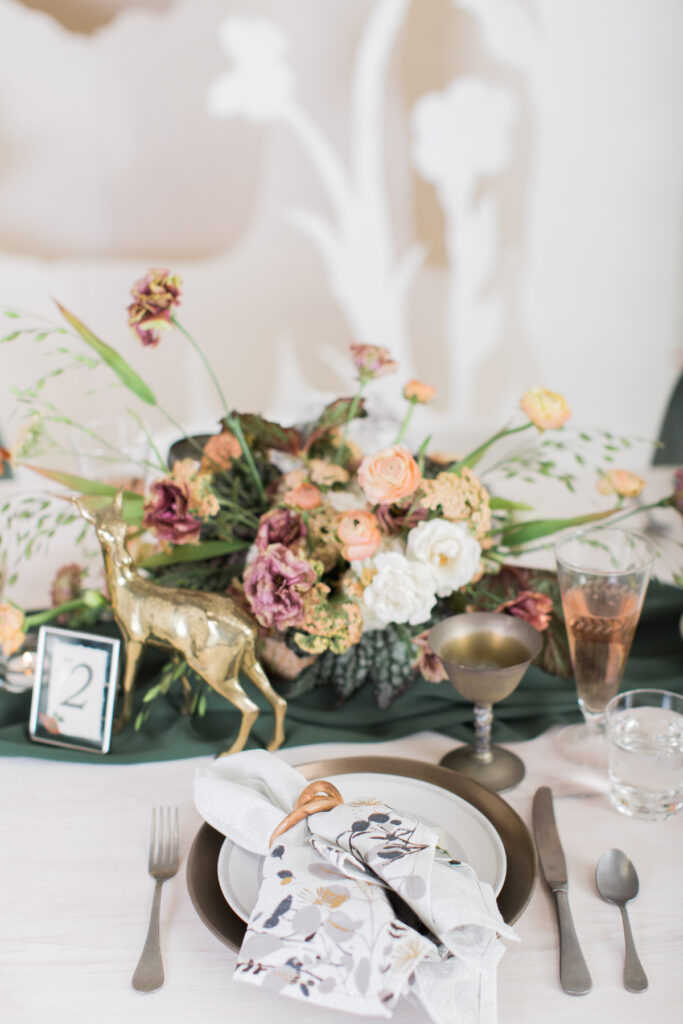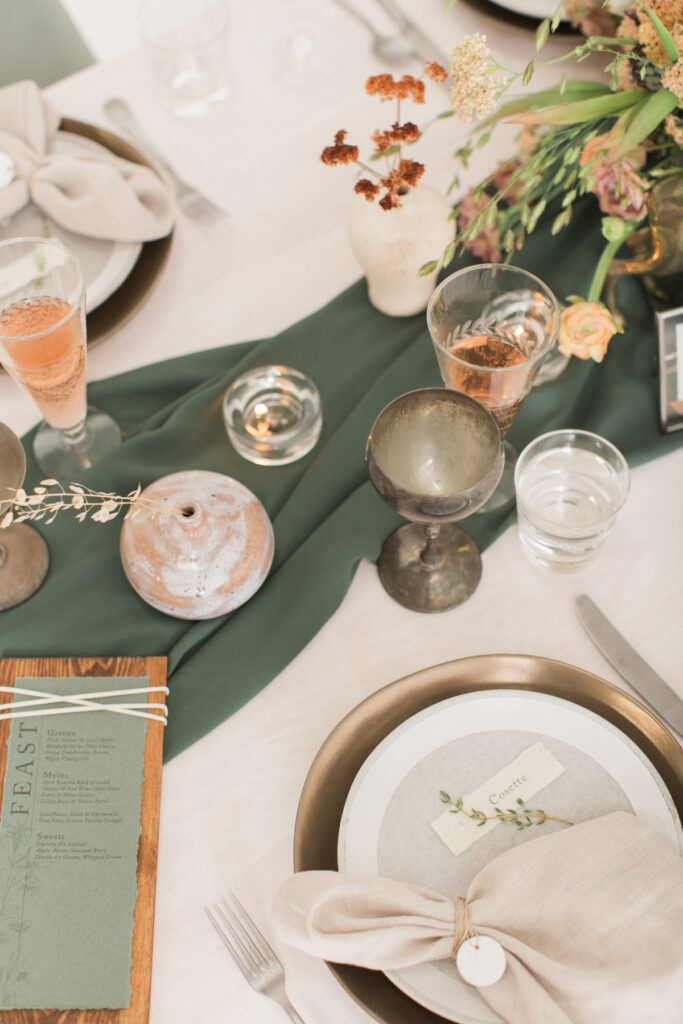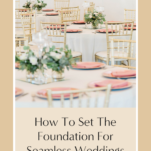There is SO much that goes into planning a wedding (literally hundreds of hours worth of steps!), but as a new wedding planner, getting organized and knowing where to start can be a little overwhelming. As a former wedding planner (for over a decade!) turned business coach for wedding pros, I understand the struggle! So, what should you include in your wedding planner process to set the foundation for seamless weddings and happy couples? Today, I’m sharing the six BIGGEST things (most of which are often overlooked!).
Before I dive in though, welcome! If you are new to my world, you can find all of the templates and playbooks (my in-depth guides to almost every facet of the wedding process) here. Specifically, I go into 70+ pages of detail on how to create a wedding planning process here so if you want to skip to the good part where you just get to have systems in place without the trial and error, I highly recommend grabbing a copy!
For monthly drops (and to get support from me and other wedding planners building businesses just like yours!), make sure to hop on the waitlist of the Planner’s Playbook – my membership for wedding planners! Doors open soon, and we would love to welcome you into the best wedding planner community on the internet!
Alright, now let’s dive into what you came for!

1. Onboarding Process
First, let’s talk about onboarding. Having a solid onboarding process is the cornerstone of any successful wedding planning business, and it’s the MOST important step if you want to start building a strong, trust-based relationship with your clients.
While you may not think of onboarding as something to include in your wedding planner process, the truth is that this phase is crucial because it sets the tone for your entire working relationship, ensuring that both you and your clients are on the same page from the get-go. It's not just about paperwork and contracts; it's an opportunity to deeply understand your clients' visions, concerns, and expectations. Effective onboarding can smooth out potential bumps down the road by establishing clear communication channels, aligning on expectations, and building a mutual understanding of the process ahead.
Moreover, it's your first chance to showcase your professionalism, attention to detail, and commitment to their wedding, making it an indispensable part of creating a memorable and stress-free experience for your clients. Remember, your clients are likely excited AND a little nervous to sign that contract. You need to create a process that reaffirms they made the right decision!
Not sure what to include? I outline my 8 step framework for creating an onboarding process here!
2. Questionnaires
This one goes hand-in-hand with your onboarding process, because in order to get started with the wedding planning process, you likely need to ask your new couple some questions! While I love a consultation call or kick off call to get a sense of the vibe, some questions are better fit for a questionnaire where they can think more about their answers.
On top of the initial questionnaire (which by the way – you can grab mine here!), you’ll likely need at least a few questionnaires in your tool kit throughout the planning process to send to clients (another popular one I’m often asked for is for my pre-wedding rehearsal questionnaire where you can fine tune all the wedding day details!).
Remember, there are some details that will be easier to confirm in writing, so it is worth adding questionnaires as something to include in your wedding planner process to give off a feeling of professionalism, and offer you another chance to catch anything that might be falling through the cracks (you can never have too many of those, right?).
3. Budget Planning Process
This is probably NOT the reason you couldn’t wait to become a wedding planner, but knowing how to create detailed budgets is a skill that underpins the entire wedding planning process. It requires a thorough understanding of the wedding industry, including typical costs and where to allocate budget for maximum impact. Your ability to craft a comprehensive budget that accounts for every detail—no matter how small—will not only impress your clients but also help you manage payments, and keep the project on track financially.
If the idea of putting together a budget (and presenting it to your couples!) makes you sweat, I share exactly what to do inside my Wedding Planner Budget Guide (including how to navigate those sticky situations – like when your client wants you to negotiate with vendors on their behalf!).
4. Vendor Referral Process
Next, you need to have a vendor referral process in place in your wedding planning process. Your clients come to you not just for your organizational skills or your eye for design, but also for your knowledge and connections within the industry. They're trusting you to curate a team of vendors that can bring their vision to life, fitting their style, budget, and expectations. This is why having a solid referral process is so important. Your couples don’t want a random list of names or the same vendors you refer everybody too!
With that said, creating a trusted network of vendors takes time. You need to know who excels in their field, who offers the best value, and who is most reliable. More importantly, you need to know who wants to book the same type of weddings you want to book, and who provides the kind of experience your ideal clients want to have. When you recommend a vendor, you're putting your own reputation on the line, so it's important that these recommendations are tailored and thoughtful.
Now that’s where your vendor referral process comes in. Everyone’s process looks different, but it can include initial introductions, setting up meetings, and even reading over contracts. By facilitating these steps, you not only enhance the service you provide to your clients but also strengthen your relationships with vendors. Good vendor relationships are symbiotic; they can lead to mutual referrals, better pricing, and priority service—all of which benefit you and your clients.
5. Wedding Day Team Process
Having solid systems in place on the wedding day is important (duh!). But effectively communicating these systems to your team? Even more important! Your systems need to detail the what, when, and how of every aspect of the day. Clear communication minimizes misunderstandings and errors, and better yet, allows for quick adjustments and ensures that the day progresses smoothly.
Ultimately, the strength of your systems and your ability to communicate them effectively are what enable you to deliver the magical experience your clients are dreaming of. This is really what your couples are paying for!
If you’re wondering exactly how to do this, I break down exactly how to hire, train, and schedule staffing for your events here!
6. Offboarding Process
Last but not least, you need to have an offboarding process that’s as strong as everything else you’ve done. Your couples may feel emotional when the wedding is over, and the last impression you leave is HUGELY important. You don’t want them to feel like you don’t care about them now that the wedding is over. You want them to feel grateful to have worked with you. Plus, you also want them to be eager to leave you a five star review (and refer you to all of their engaged friends!). If you want to know MY secrets to creating a memorable offboarding experience (and you’re ready to feel more confident saying goodbye!), grab my Offboarding Playbook here!

Creating a Wedding Planner Process You Love
Becoming a top-tier wedding planner requires more than just passion and a knack for organization—it demands continuous learning, adaptability, and an unwavering commitment to creating joyous occasions that resonate long after the last dance. After all, we’ve covered six things you need to include in your wedding planner process but haven’t really talked about planning the wedding yet!
Here's what I want you to know: you don't have to do business alone. Inside my membership, the Planner's Playbook, I've distilled over a decade of wedding planning expertise into actionable strategies, detailed playbooks, and supportive community insights designed to elevate your planning game.
Whether you're wrestling with budget spreadsheets, fine-tuning the back-end of your business, or ensuring the big day unfolds without a hitch, the Planner's Playbook is your go-to resource for guidance, support, and inspiration. If you’ve been looking for resources to help you become a better wedding planner (and if you’ve read this until the end, I’m guessing you are!), I would love to invite you to hop on the waitlist now!
Explore More Wedding Industry Resources
- Wedding Planners – Should You List Your Wedding Planner Pricing Packages On Your Website?
- How To Create An Offboarding Process In Your Biz
- The Ultimate Wedding Planner Templates
- Creating a Wedding Budget Template for Planners
- How to Start a Wedding Planning Business
- The Best Wedding Planner Onboarding Workflow: 5 Things You Need
- The 5 Stages of Scaling Your Wedding Business You Need to Know About
- The Ultimate Guide to Creating Systems and Processes in Your Wedding Business
- The Best Software For Wedding Planners (From Your Wedding CRM to Your Website!)
- How To Start The Wedding Planning Process With Your Clients
- 4 Tips for Creating a Preferred Wedding Vendor List as a Wedding Planner
For More Wedding Planner Business Secrets Follow Me On Instagram
A weeks worth of #ootdstyle ✨ I think day 4 is definitely my fav. 😉 Which outfit did you like the most?
I really enjoyed sharing these this week in my stories and want to keep doing it! My question is - do you like this kinda content?! I have an idea I’ve been marinating on that I’m not 💯 sure of just yet… 😉
Happy Sunday!
#ootdroundup #ootdwatch #ootd #ootdshare #ootdinspiration #wfhfashion #wfhoutfit #candicecoppola

Cheers to Fridays, Aperol Spritzes, new friends and summer vibes ✨
just a reminder that I have 4 amazing episodes waiting for you on my podcast all about email marketing, so you can get back to having fun on Instagram ✨🫶🏼
Imagine if you didn’t stress out so much about your marketing because you diversified your sales funnel with more sustainable strategies like email marketing?
maybe you could just enjoy social media a little more and stress about it a little less.
Xo!
#aperolspritz🍹 #fridayintroductions #summervibes #flodesk #candicecoppola #weddingindustry #weddingindustryexperts #weddingpros #weddingprofessionals

Selling is usually hard for everyone. We feel “icky” when we sell, and many of us don’t want to feel pushy or like we are bothering other people with our services/offers. But selling is important. Like, really freaking important. lol
This week, I’m teaching you a selling model that I created for my marketing. Yes, even I struggle (sometimes daily) with selling. It’s the Serve, Serve, Sell Formula, and it will help you tremendously, especially when it comes to email marketing!
📣 COMMENT 137 and I’ll send you a Spotify and Apple Podcasts link to this episode so you can hear more about my sales formula and binge all 4 episodes that are currently live! 🙌🏼
#emailmarketing #emailmarketingtips #weddingindustry #weddingpro #weddingpros #thepowerinpurposepodcast #powerinpurposepodcast #candicecoppola #weddingindustryeducation #weddingindustryexperts #weddingpodcast #businesspodcast #marketingstrategies #flodesk

The best thing I’ve ever bought is a plane ticket to Barbados. Cheers to 10 years of marriage with you ✨✨
10 years ago today we snuck off (sorry friends and fam!) to get married at a small little church on the beach. It felt like I was doing something crazy - we had only been dating for 10 months - but my nerves were quieted by an inner sense of knowing that this was right.
When you know you know. ❤️
I’m so lucky to have a partner where everyday feels like our anniversary. Thank you for giving me a life better than I could have ever imagined, and for being my person. #kistoos #kistoos💞 #10yearanniversary












+ show Comments
- Hide Comments
add a comment